Successful Youth Space Workshop on "Domestication of Aura: AI Generated Content and Cultural Innovation
August 8,2023
With the innovation of information technology and the transformation of modern society, generative AI (ChatGPT) has emerged, capable of undertaking cultural activities such as artistic design, digital cultural tourism, and complex aesthetics. AI has quickly garnered widespread attention globally. In the current trend of human-machine collaboration, generative technology, also known as AIGC (AI Generated Content), inevitably brings new opportunities and challenges to cultural innovation. "Aura," as an embodiment of cultural and artistic value, counteractively imbues technology with a humanistic spirit.
On July 1st, 2023, the Youth Space Workshop with the theme "Domestication of Aura: AI Generated Content and Cultural Innovation," organized by the USC-SJTU Institute of Cultural and Creative Industry (ICCI), was successfully held. Eleven scholars from renowned domestic and international universities such as Imperial College London, City University of Hong Kong, Peking University, Wuhan University, Shandong University, and Shanghai Academy of Social Sciences gathered together. They initiated interdisciplinary discussions with a focus on research topics related to intelligent communication, digital cultural creativity, and humanities arts.
At the beginning of the conference, Weimin ZHANG, Dean of ICCI, delivered the opening speech. ZHANG pointed out that AIGC has become a popular buzzword, likely to completely change our future way of life, especially in terms of knowledge acquisition and teaching methods, bringing profound impacts to education and talent cultivation.
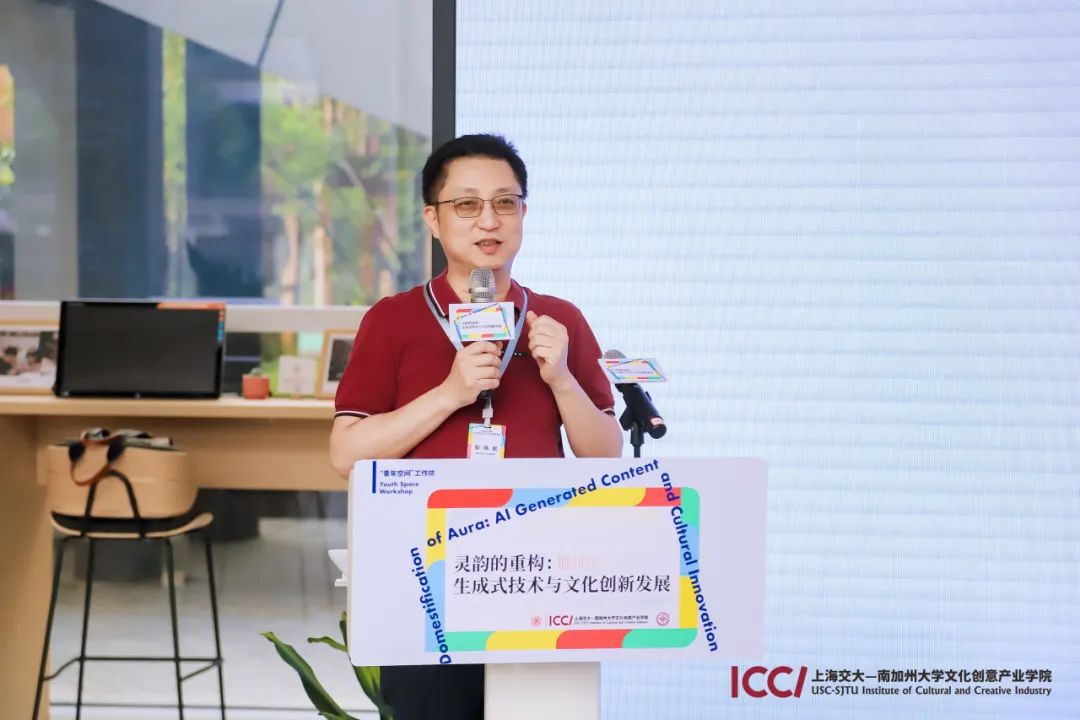
Ke XUE, Vice Dean of the ICCI, emphasized the original intention and operation mode of the Youth Space Workshop. Since its establishment in 2021, the workshop has consistently adhered to the principle of being cutting-edge, interdisciplinary, and interactive, creating an academic platform for young scholars.
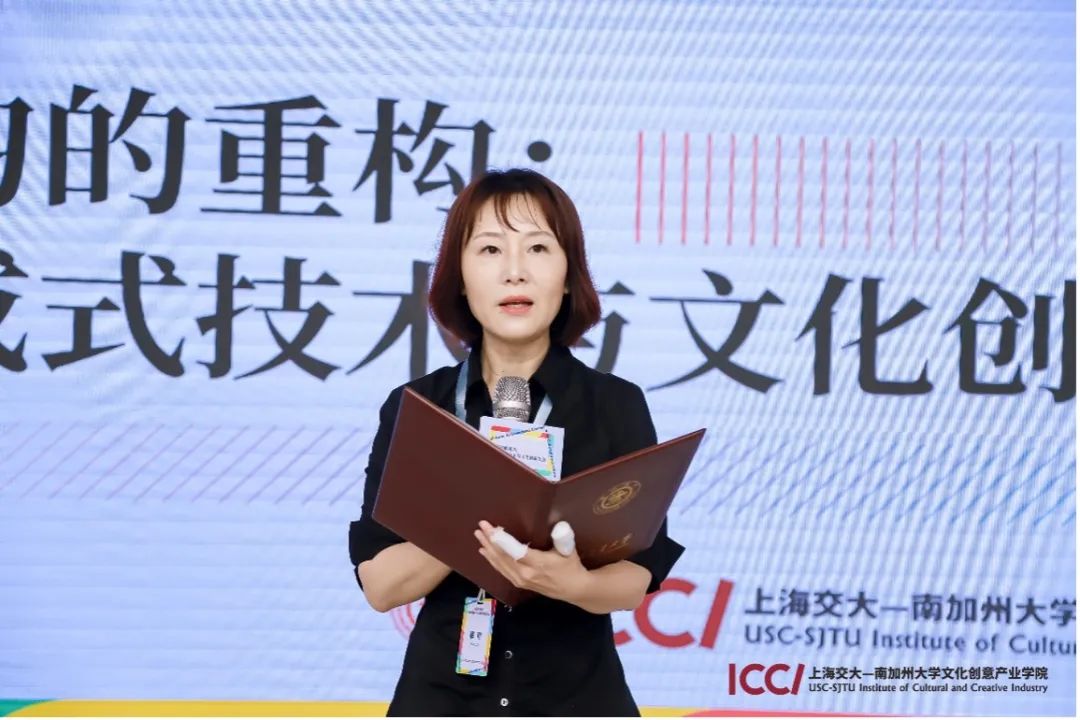
Focusing on Implementation: Technology In Cultural Innovation
The rapid development of AIGC has broadened the imagination and content matrix for human creativity, bringing more possibilities to the cultural and creative industries. In this year's Youth Space Workshop, young scholars focused on the forefront of technology and presented their insights. Xiaofan LIU, Assistant Professor from the Department of Media and Communication at City University of Hong Kong, delivered a paper entitled "Fifteen years of algorithmic composition: From complex network to AIGC." He summarized the evolution of algorithmic music composition into four stages and traced its development from rule-based methods to the latest emergence of AI-generated content. Yutian LIN, Associate Professor from the School of Computer Science at Wuhan University, analyzed the operating mode of AIGC, which utilizes deep learning and generative models to learn from vast amounts of data and generate highly realistic multi-format content. Feng ZHOU, an Assistant Researcher from the Institute of Philosophy at Shanghai Academy of Social Sciences, proposed conducting empirical research on artificial intelligence art to compare and match neuropsychological effects between artificial intelligence art and traditional art, thus making it possible to bridge the gap.
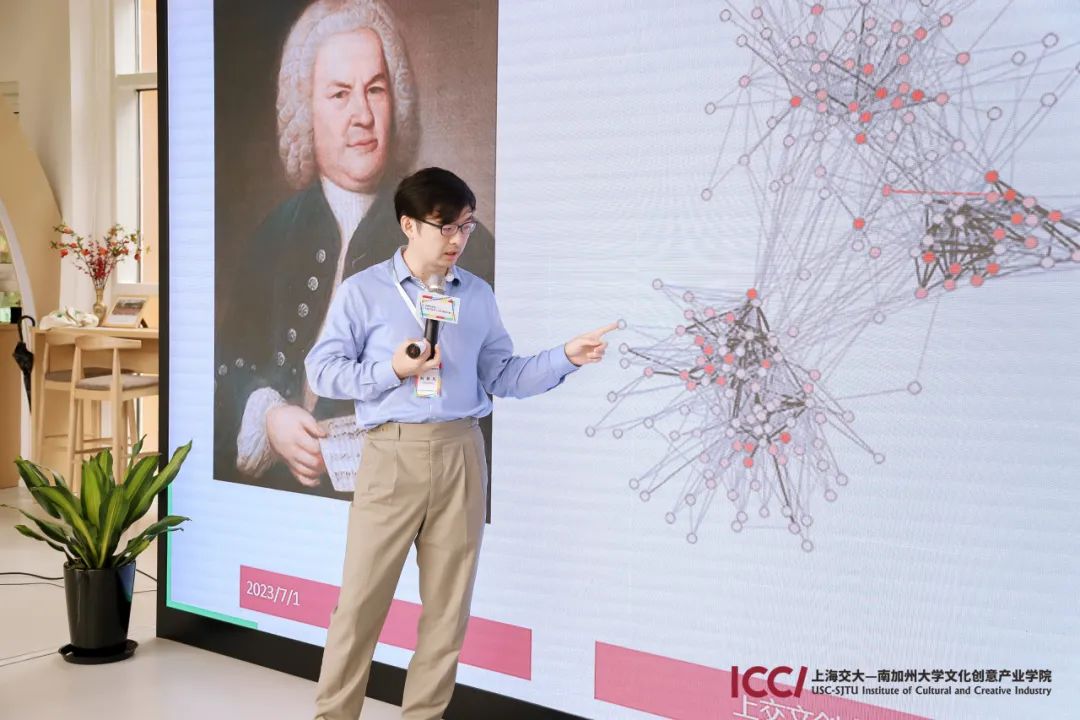
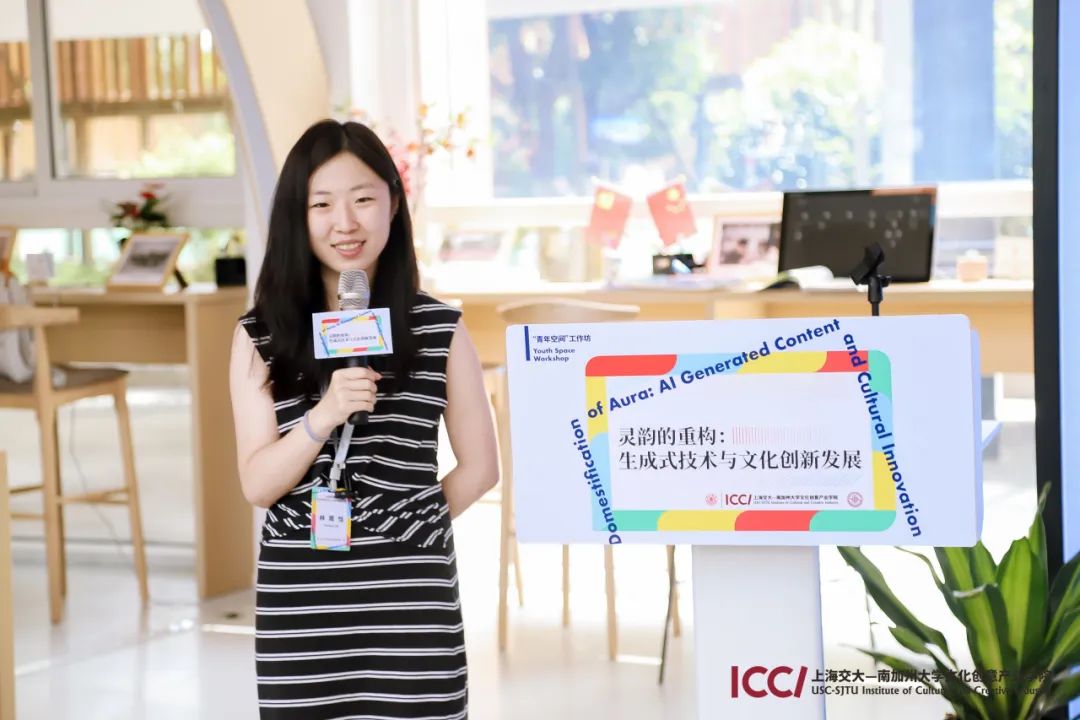
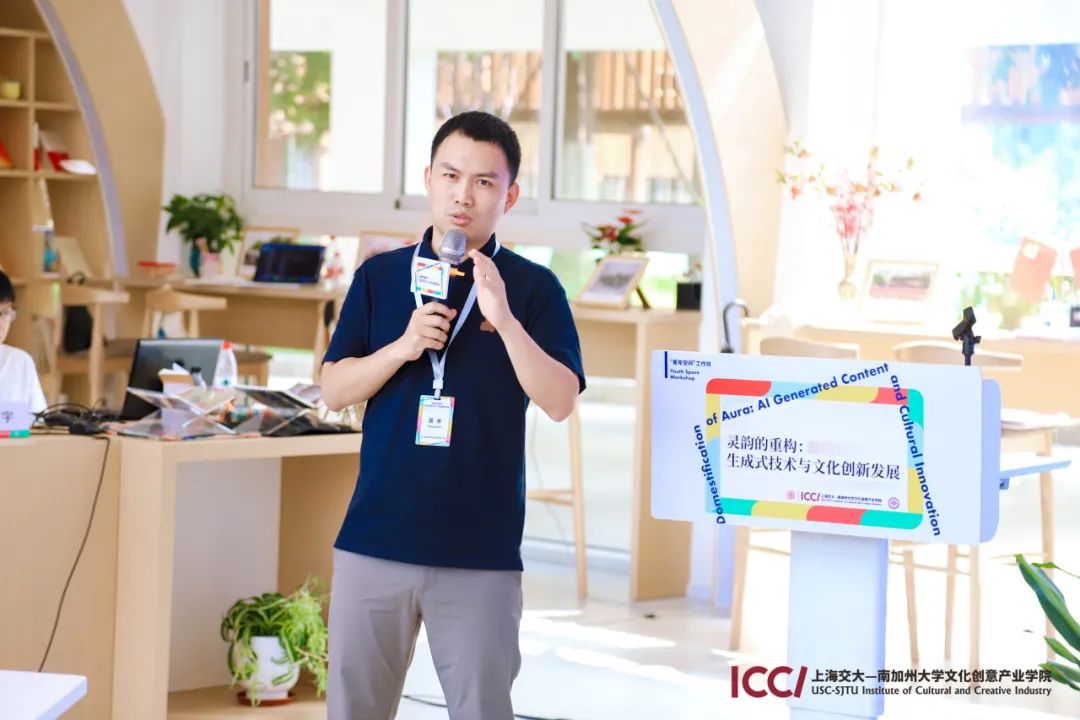
(Speeches by the presenters)
How Generative Technology Restructures Industrial Production Organizations
Adhering to the principles of interdisciplinary integration and research fusion, the participating scholars, based on their diverse disciplinary backgrounds, focused on discussing the impact of artificial intelligence technology on industries such as cultural and creative design, educational publishing, and brand communication. Sarah CHEN, head of AILAB at RMLABS, propose the topic "How to Expand Quality Digital Content Production" and shared her views on AIGC. She regarded AIGC as a creative tool for producing high-quality content, enabling more dynamic content consumption experiences and bridging the gap between content supply and demand. Su ZHOU, Director and Associate Senior Editor at Higher Education Press of Beijing Normal University Publishing Group, believed that ChatGPT would reshape the overall landscape of educational publishing, transform content production methods, and upgrade integrated forms. JinYu ZHANG, a Ph.D. candidate from the School of Art at Peking University, has chosen the comprehensive employment service platform "58 Tongcheng" as the research subject to explore the impact of AI graphic generation software on graphic designers and consumers in the fields of visual poster design, illustration design, and 3D design. The experimental findings indicate that the current market users generally underestimate the application level of AI tools. With the entry of AI-generated tools into the creative labor market, designers are facing a challenge of role transformation and a shrinking job market.
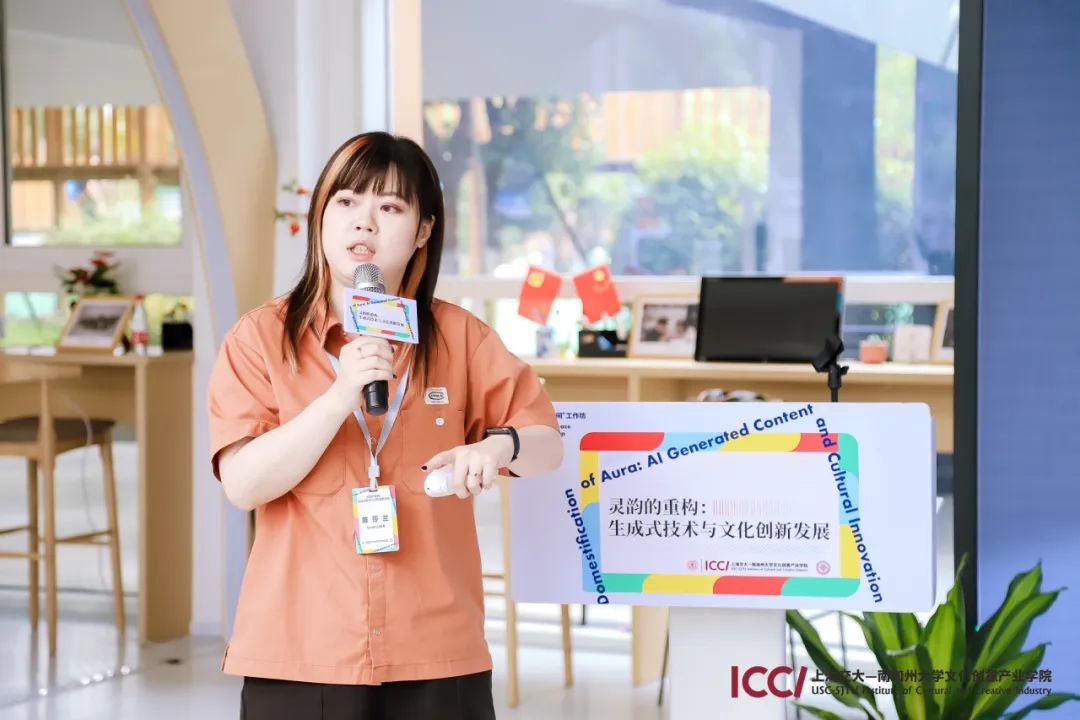
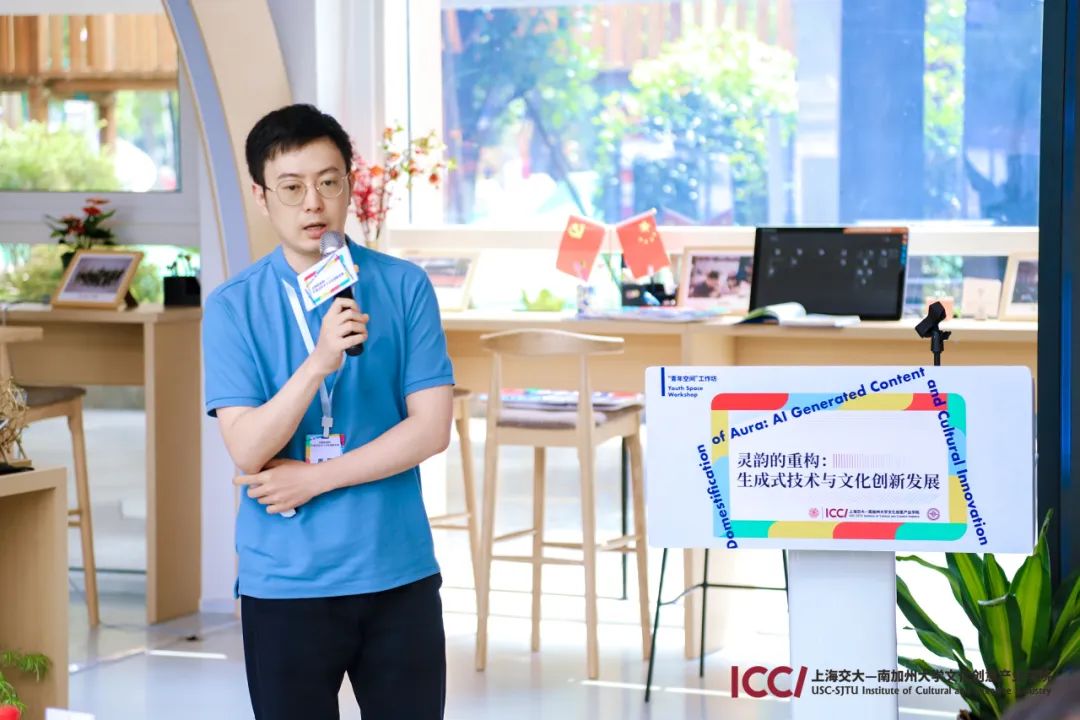
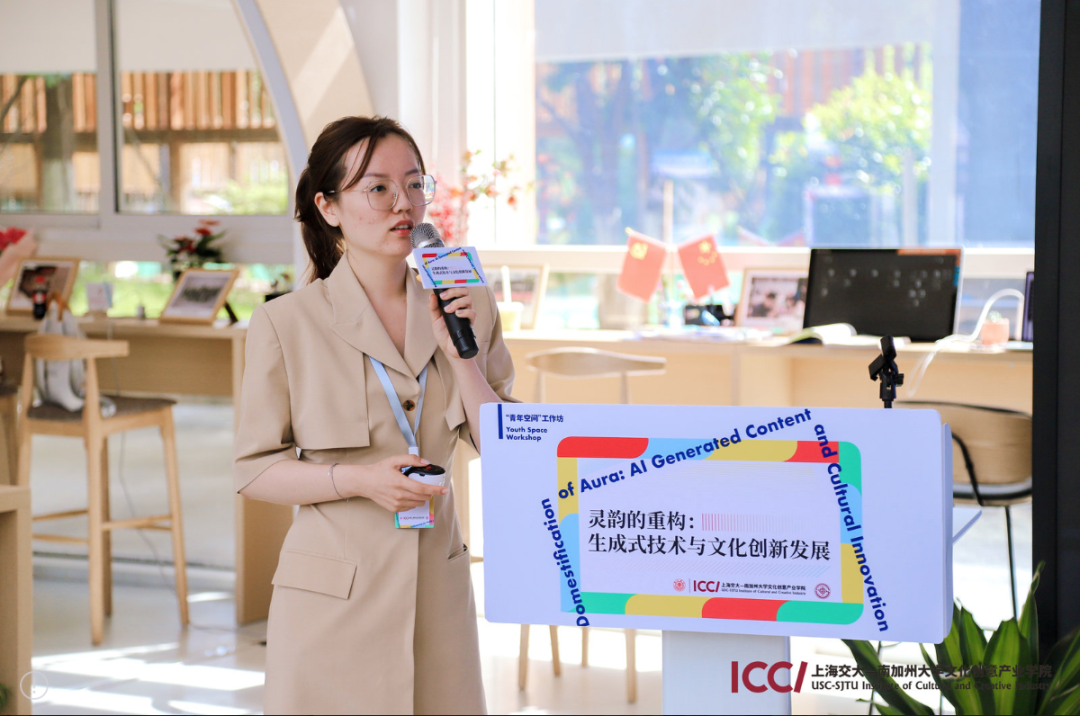
(Speeches by the presenters)
How We Approach Generative Technology
The breakthroughs made by generative technology have continuously enhanced our understanding and experiences in various domains. Before delving deeper into the application of AI technology, it is necessary for us to have a more complete, accurate, and profound understanding of this technology. Yichao YAN, Assistant Professor at the AI Institute of Shanghai Jiao Tong University, shared his thoughts on metaverse generative AI and generative virtual digital humans. Generative AI serves as a content generator, a virtual-to-real connector, and an efficiency accelerator in the metaverse, while virtual digital humans are the natives and productivity of the metaverse. Haoyu ZUO, a PhD candidate from the School of Design Engineering at Imperial College London, presented a knowledge extraction algorithm based on the BERT language model. This algorithm can extract factual knowledge from patent abstracts and construct a patent knowledge graph (Patent-KG), thereby assisting engineering designers in quickly accessing the information they need, stimulating design thinking, and driving innovative design implementation. Yuhao LI, a PhD candidate from the Fine Arts School at Shandong University, provided a detailed introduction to the beneficial effects and related risks that generative AI brings to television content production, along with targeted preventive strategies.
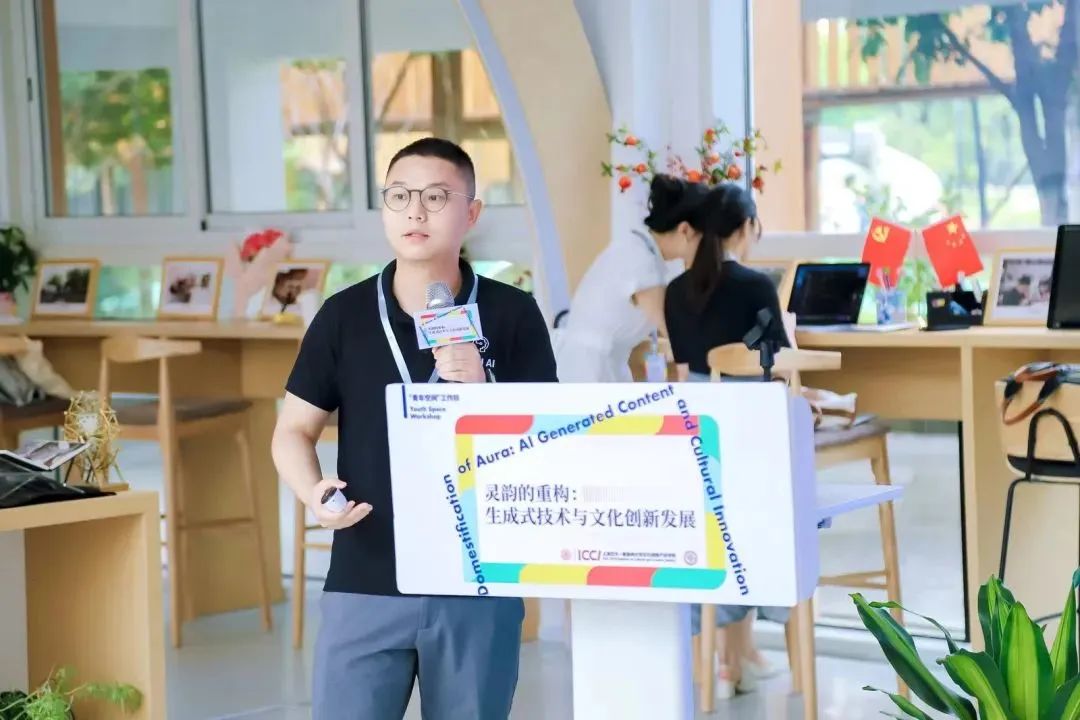
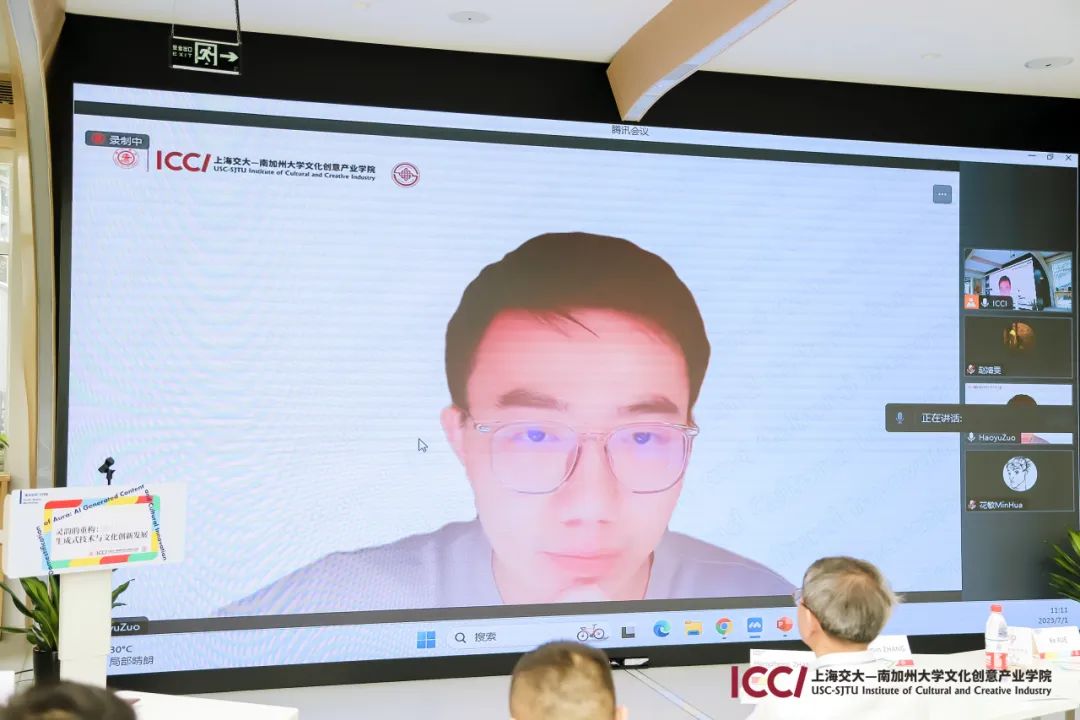

(Speeches by the presenters)
As the discussant of the forum, Hongzhong ZHANG, Professor from the School of Journalism and Communication at Beijing Normal University, and Yu WU, Professor from the School of Computer Science at Wuhan University, provided comments on the speakers' presentations. During the interactive session, the audience engaged in a focused discussion on topics such as defining generative art, whether generative technology will disrupt our understanding of art, and how to prevent the "removal" of the soul of artworks. Artificial intelligence is merely an assistant in human creative production. Each form of art has its specific mode of expression that cannot be replaced by language models, and human artistic creation cannot be simplified to the imitation of styles by artificial intelligence.
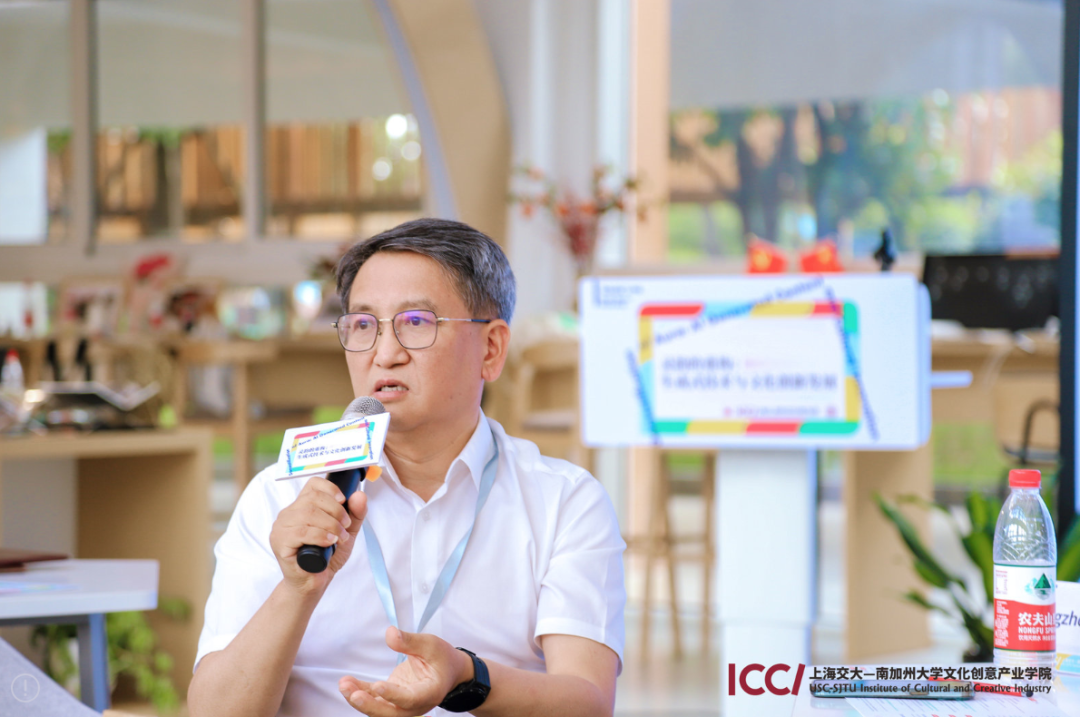
(Comments by Professor Hongzhong ZHANG)
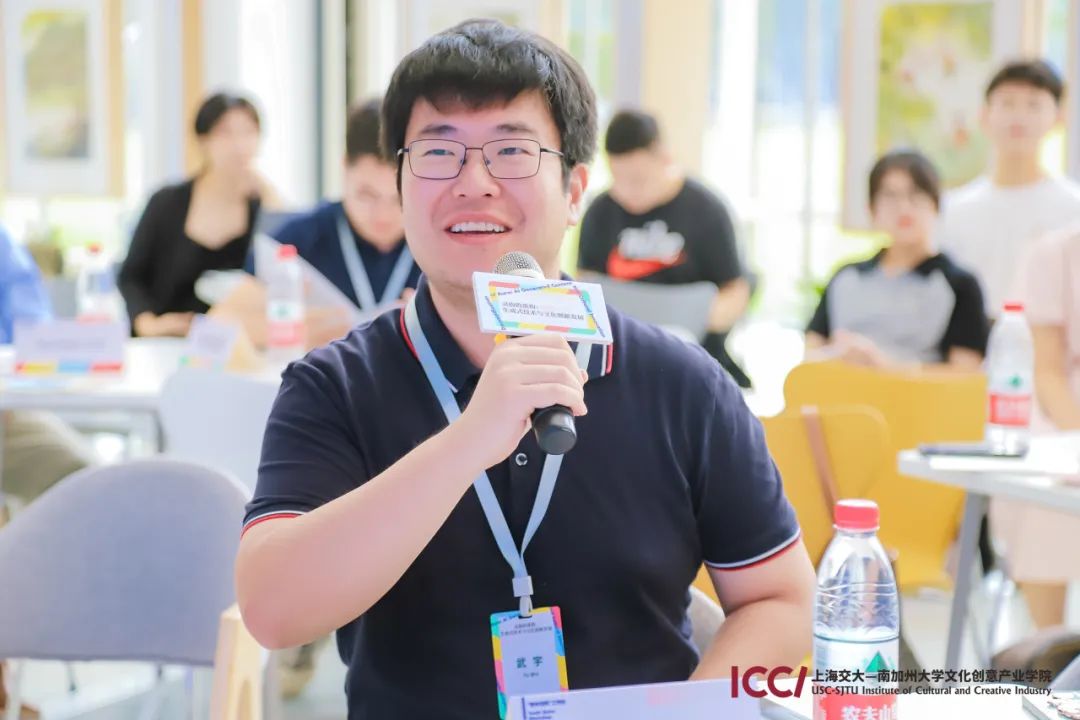
(Comments by Professor Yu WU)
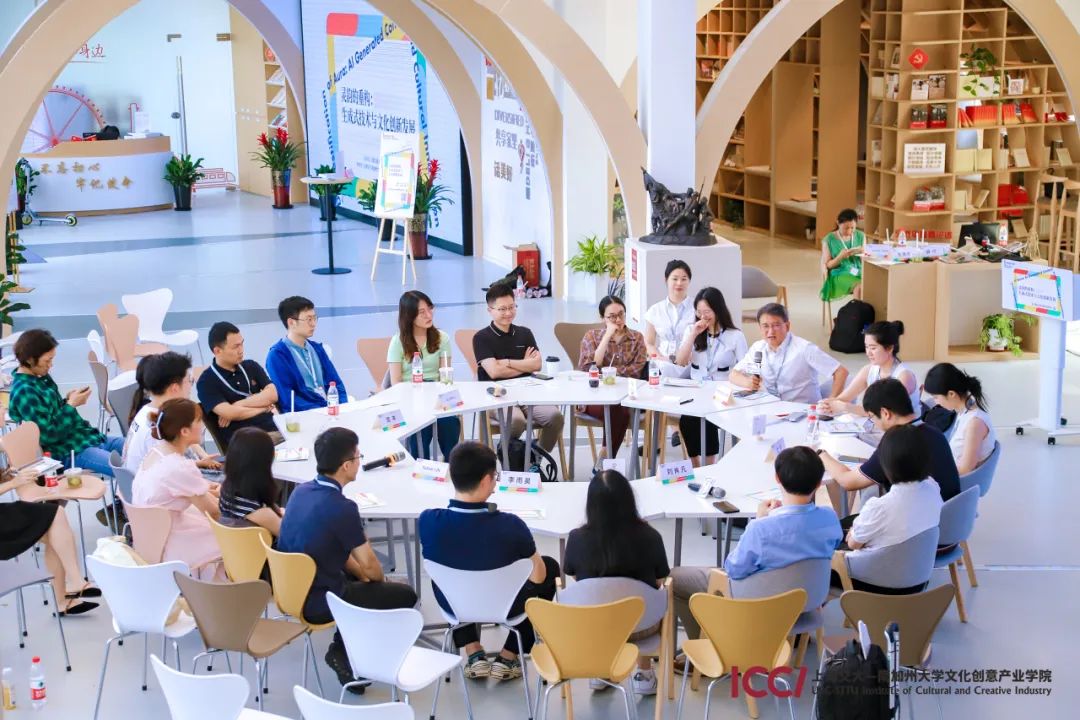
(Roundtable discussion)
The Youth Space Workshop encompassed cutting-edge topics such as generative AI and cultural innovation, the restructuring of industrial organizations by generative AI, and the cognitive and perceptive aspects of generative AI. By adopting interdisciplinary research perspectives and methods, this workshop sparked creative vitality, keeping pace with the trends of the era. It allowed us to objectively examine the social development and changes in the era of intelligent communication technology.
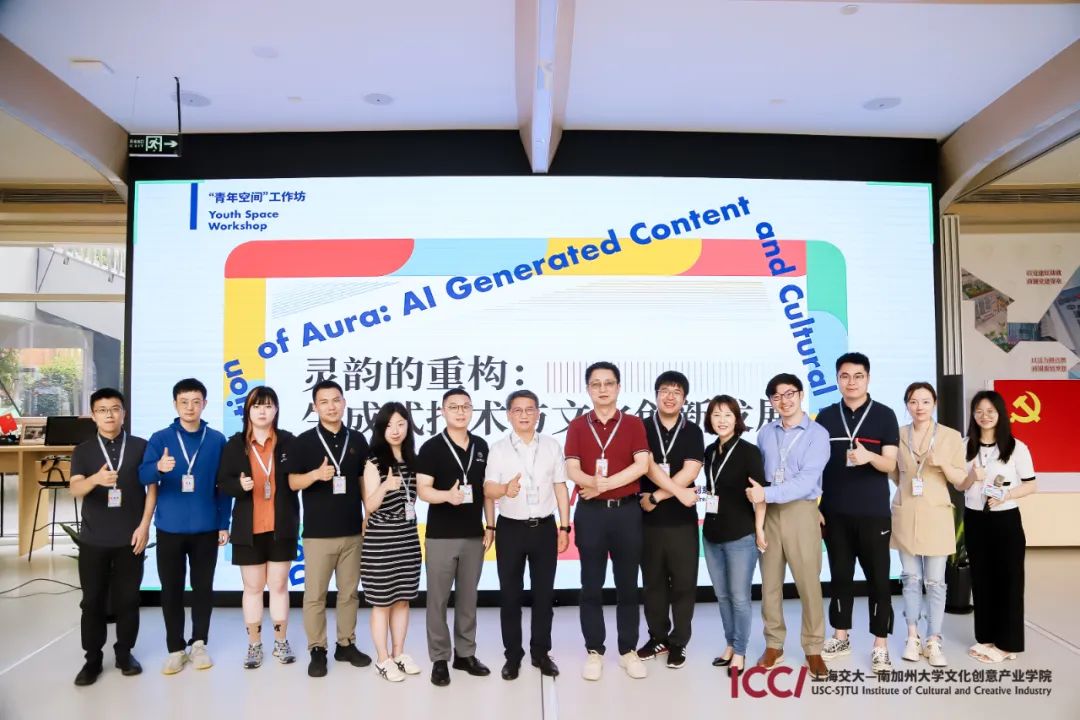
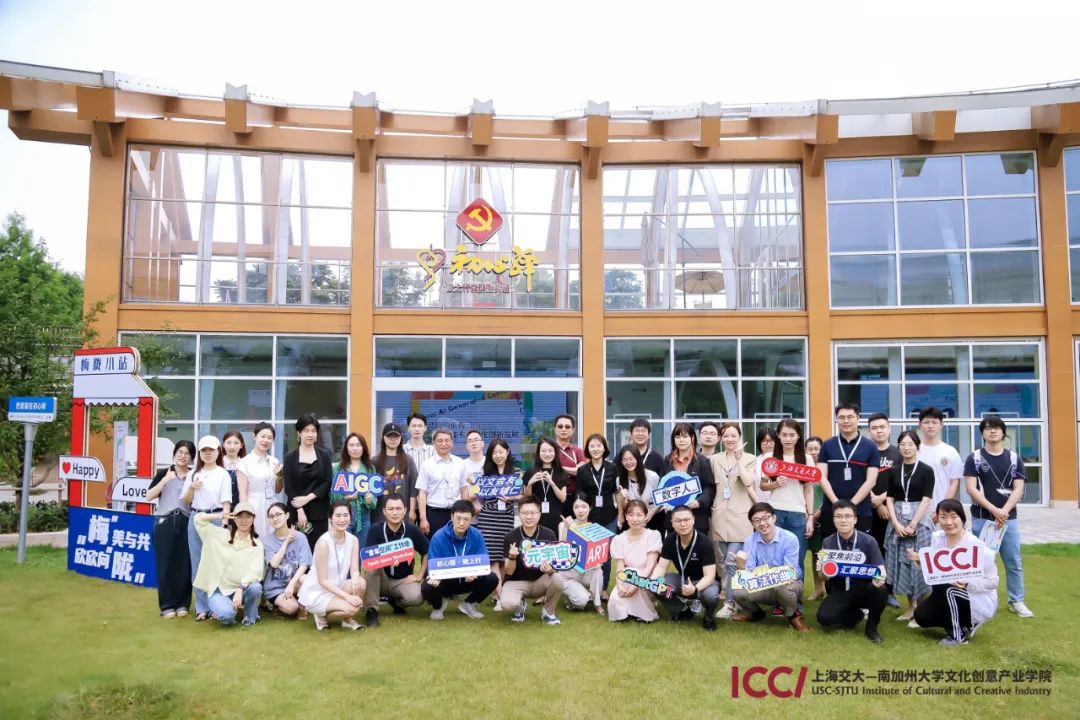
Editor on Duty: Cheng Yan

